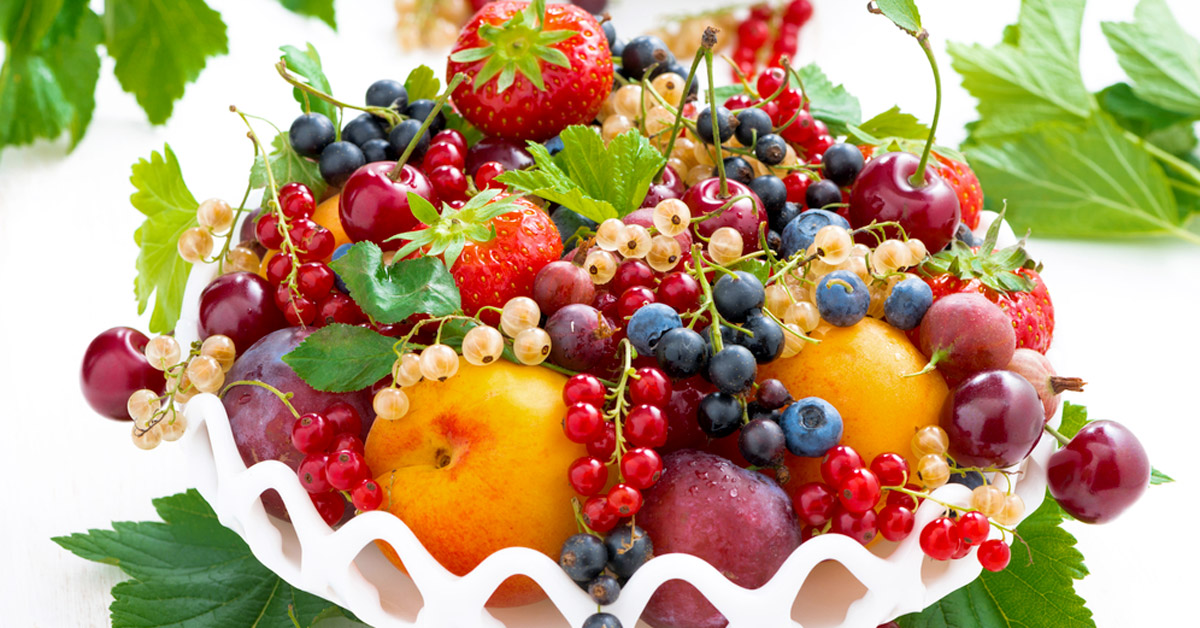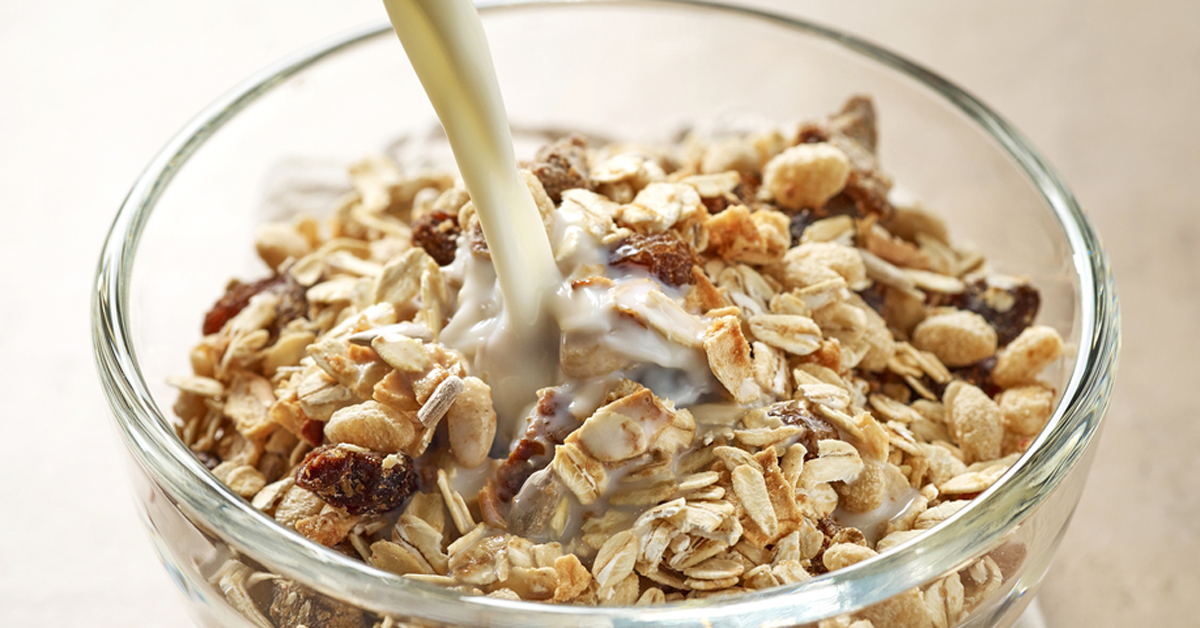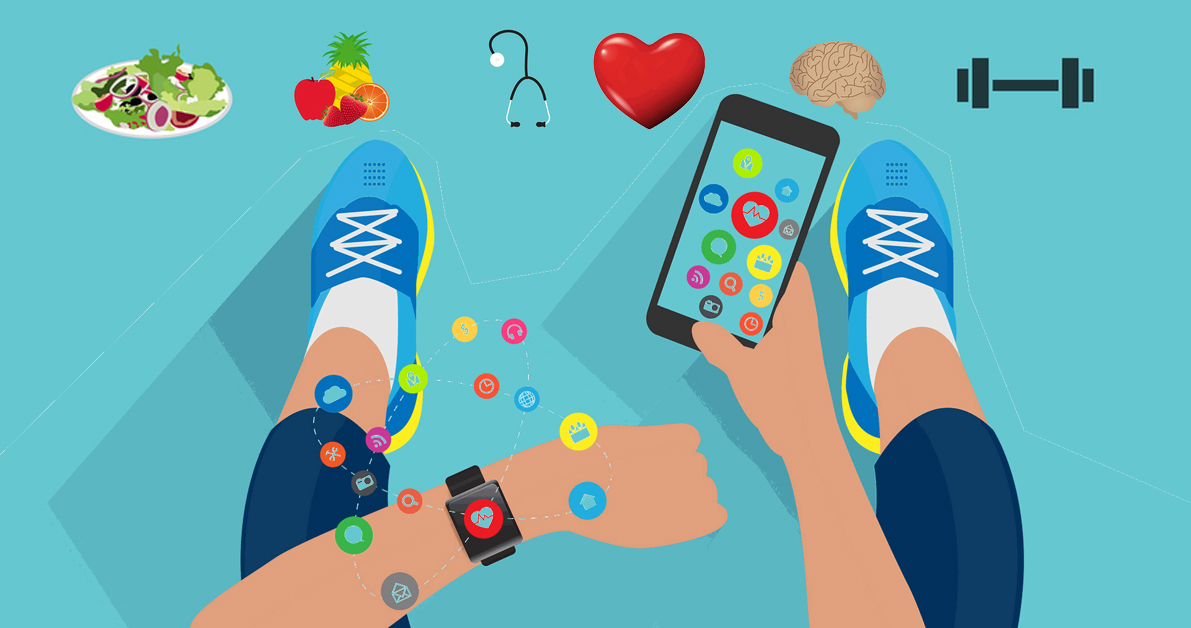We regularly publish some great healthy living tips, new recipes and other Prune tidbits on our blog
Special Diet
A step closer to healthier Snacking.
Posted Fri, Jun 11, 21 by Sunsweet
Snacking. It really is an everyday part of modern life. But, watch-out, not all snacks are created equal! So, how can you make healthy choices around the whole snacking issue and yet avoid being caught out by the convenient but calorific-loaded and nutrient-light options when the munchies strike?

The important role of healthy snacks in the diet
Overeating of any kind is likely to lead to weight gain, in the long term. And unhealthy snacks – like crisps, biscuits and fizzy drinks – should certainly be limited to being just a very occasional treat. But there is compelling scientific evidence that nutritious snacks can – and indeed should – form part of a healthy balanced diet. According to the Mayo Clinic, choosing healthy snacks can help to both manage hunger, in the short-term, and reduce the likelihood of bingeing when it comes to mealtimes. But the trick is to choose snacks that can kick hunger into touch while, at the same time, be nutritionally beneficial and keep calorie counts low.
Kids' stuff
The evidence to support the positive role of snacking is even more compelling when it comes to kids. Childhood is a time when young bodies are growing rapidly, and any parent will confirm, kids shoot up fast. But children have smaller stomachs than adults meaning that they usually feel fuller quicker. According to a 2009 study by the WHO, snacking can be a good way for children to meet their extra nutritional needs and to support normal development. Why not give our Prune Energy Balls recipe a go? They're tasty, healthy, easily-made and can last up to a week!
Trends in snacking
In today’s on-the-run society the temptation of the quick-fix convenient snack, often in the form of the nutritional bar, may appear to be just what a hungry tummy ordered. Clever advertising may suggest health values, however, nutritionists agree that not all nutritional bars are created equal! Many are high in refined sugar and can have as much saturated fat as a regular confectionary bar.
A recent Mintel report on snacking suggests that there is a growing preference for healthy food choices. And young people - the Millennial generation of 21 to 38 year olds, for example – were likely to snack for function and focus, with 39% snacking to get an energy boost. And California prunes tick lots of these boxes.
- Sweet (Prunes contain only naturally occurring sugars, with no added sugar.)
- Super-tasty
- Packed with nutrients
- Low Glycaemic Index (GI) of 29, which means that their sugar is released relatively slowly on digestion, helping to avoid the “rush-and-slump” that can be associated with other snacks.
It makes dietary sense to have a repertoire of easily prepared snacks up your sleeve, ideally ones that can be made advance, are suitable for the whole family and can be enjoyed whenever you're on the run. Think school lunch boxes, pre or post-exercise pick-me-ups, an office 'deskfast'. Check out our Prune Energy Balls - tasty, satisfying and nutritious.
Please Note: Prunes are good for digestion and help keep you regular, when 100g are eaten as part of a varied and balanced diet and an active lifestyle. Always consult a GP if you have any health concerns.
Dietary Fibre 101
Posted Fri, Feb 21, 20 by Sunsweet
What exactly is fibre? Why does the body - every body - need it? What happens to our body if we don’t get enough of it? And how can we ensure that we keep getting plenty of it? Read on for everything you - and your family - need to know about dietary fibre.

Our Dietary Fibre 101
OK. We admit that as health topics go, dietary fibre - and the role that it can play in contributing towards a healthy and normally functioning body – is far from being a glamorous one. And yet, dietary fibre is an important health topic. With a seemingly endless increase of pressure on our time and the proliferation of quick, convenient and very nutrient-poor meals, many of us simply do not get enough fibre from the food we eat on a regular basis.
But what is dietary fibre?
In a nutshell, dietary fibre is the tiny parts of things like cereal, vegetables and fruit that cannot be digested in the small intestine. Instead, this dietary fibre passes further along in the digestive system before most of it gets broken down by bacterial action in the colon. Increasing dietary fibre – as part of a healthy and balanced diet - can help to soften stools, making them easier to pass and helping to keep the complex cogs of the digestive system moving!
If you would like a more detailed understanding of how the digestive system works then our 'whistle stop tour of the digestive system' will be of interest to you.
And it seems that fibre has an even more crucial role to play, too. The World Cancer Research Fund (WCRF) reckon that dietary fibre is protective against bowel cancer. Around 12% of bowel cancers in the UK are linked to eating insufficient fibre, less than 23 grams a day.
Types of dietary fibre
Dietary fibre is typically divided into two groups:
- Insoluble Fibre:
This is made up of the skins of fruits, the stalks and leaves of vegetables and the husks and hard coats of seeds. Insoluble fibre is more slowly broken down and its bulk helps with the evacuation of stools.
- Soluble Fibre:
This is more completely fermented in the colon, it retains fluid, softening the stools and making them easier to pass.
Many plant components contain both soluble and insoluble components of dietary fibre. For example, the skins of prunes are composed of insoluble fibre and the pulp and juice are composed of soluble fibre
Dealing with constipation
If you do become constipated, it is even more important than ever to aim for at least 5 portions of fruit or vegetables a day. Fibre-packed dried fruits and natural, unsweetened juices can both count towards this target. Just three prunes a day count for one of your ‘5-a-day’ portions!
Highly processed foods are best avoided as these tend to be higher in fat, salt and sugar and are often lower in fibre. Get into the home-cooking habit. Our recipe pages are a great place to look, for healthy inspiration.
The role of fluids
To help to keep things moving, digestively-speaking, it’s important to make sure that you drink plenty of fluid. If you’re actively taking steps to increase the amount of fibre in your diet, be sure to increase the amount of fluid that you drink, too. The body is super-efficient at extracting fluid from the colon when it is needed for bodily functions. And even slight dehydration can lead to harder stools that are more difficult to pass. Six to eight glasses of fluid a day - water or diluted fruit juices are good choices – is a useful rule of thumb.
If you’d like to find out more about the role of dietary fibre – especially if you suffer from IBS with constipation – please do take a look at our booklet. It’s packed with expert hints and tips:
Please Note: Prunes are good for digestion and help keep you regular, when 100g are eaten as part of a varied and balanced diet and an active lifestyle. Always consult a GP if you have any health concerns.
Light Prune Focaccia
Posted Fri, Jun 11, 21 by Sunsweet
Our Light Prune Focaccia combines the wonderfully aromatic flavours of rosemary sprigs, sea salt and cherry tomatoes with sweet, versatile and super- scrumptious prunes. Made with gluten-free flour, our Light Prune Focaccia is a great option for anybody who is avoiding gluten. But it's also a great option for anybody who simply loves fresh, home-made bread. Our Focaccia is the perfect, Italian-style accompaniment to a range of healthy soups and salads. Delicious!

Ingredients
7 g dry yeast
1 tsp. sugar
1 tsp. salt
40 ml olive oil
350 g gluten-free flour
3 sprigs of rosemary, 2 of them chopped
100 g California prunes
12 cherry tomatoes
Coarse sea salt
Other:
Ovenproof pan 26 cm
Instructions
- Dissolve yeast and sugar in 250 ml lukewarm water. Add 30 ml of olive oil. Mix flour with salt, chopped rosemary and prunes. Add the dissolved yeast and stir until smooth. Pour dough into a bowl and let rise for about 1 hour until it has doubled.
- Knead the dough again and form a shape that fits into the pan. Using your knuckle, make indentations in the dough, then prick with fork. Brush the pan with some of the olive oil and place the dough inside. Press cherry tomatoes into the dough. Drizzle with the remaining oil. Sprinkle with sea salt and rosemary.
- Place into the preheated oven at 180° C (convection oven 160° C) and bake for 35 minutes. Cut the focaccia into pieces and serve.
Tip: Focaccia goes particularly well with rocket pesto.
Other recipes you might be interested in...
Make friends with technology
Posted Fri, Jun 11, 21 by Sunsweet
In the last decade, our use of the internet has skyrocketed. It’s been blamed for many things including our increasingly sedentary lifestyles. And yet it remains a significant part of our everyday lives despite all of the negative and downright fear-mongering headlines. But can technology actually have a role to play, in helping us to create balanced, happy and healthy lives?

Despite being a huge part of modern lives, the online world often gets a bad rap. If you believe what you read in the press, we’ve replaced couch potato habits for mouse potato habits – equally sedentary and unhealthy - and spend every spare moment surfing the net. Social media – in all its iterations - has been blamed for poor body image and low self-esteem across the entire range of demographic groups. And there seems to be a grain of truth behind the fear.
In England alone, according to the UK communications regulator, Ofcom, people now spend twice as much time online compared with 10 years ago and it would be safe to assume that it is a similar story all across Europe. Much of that time, of course, is spent immobile. And stats from the medical journal, The Lancet, suggest that inadequate exercise is responsible for more than 5 million deaths globally each year. Sobering stuff.
But is there a silver lining to the techno cloud?
At its very best, the internet offers a diverse resource of up-to-date, educational material that is both entertainingly written and accessible. Much of it is absolutely free. And our blog, of course, is an excellent example! Whether you choose apps or websites, social media or online newsletters, there’s lots of content out there to support you in your quest for a healthier lifestyle. Check out our top 3 techno tips, be selective and get informed.
- Newsletters – Choose reputable sources
Sign up to a couple of lifestyle-related online newsletters. Choose ones from trusted sources, that cover topics that interest you – info overload is not our goal, here – and get inspired with everything from recipes for healthy and speedy mid-week dinners to tips on keeping active, whatever the time of year.
- Workout Videos Online
Don't let good habits around physical activity slip. It’s far better to maintain an exercise programme throughout the year so that it becomes just another part of your daily routine, something that’s as automatic as brushing your teeth. And this is another area where technology can be your ally. Whatever form of exercise you enjoy – from boxercise to yogalates – you’ll be sure to find an online workout that floats your boat. Bung a one-pot-wonder into the oven – remember to keep things healthy! – and, while it cooks, pop on your workout video of choice and get moving.
- Monitoring Fitness Progress
Whether it’s monitoring your daily calorie intake with sophisticated food diaries, tracking your levels of physical activity, learning relaxation techniques like mindfulness or even keeping an eye on your menstrual cycle, there’s an app for that! Speaking to Fox News, Scott Snyder – an innovator in the field – said, “The ultimate goal of most of these apps is to change behaviour. Small changes are a big overall win for health.” We couldn’t agree more!
As with most things, getting a good balance is crucially important. Everything in moderation – including technology – and you won’t go far wrong!
Looking for more inspiration? Why not check out our Healthy Living Guide?
Please Note: Prunes are good for digestion and help keep you regular, when 100g are eaten as part of a varied and balanced diet and an active lifestyle. Always consult a GP if you have any health concerns.
Managing Irritable Bowel Syndrome with constipation
Posted Fri, Jun 11, 21 by Sunsweet
Irritable Bowel Syndrome with constipation is surprisingly common. And with a range of distressing – and potentially life-limiting – symptoms, it's something that you're going to want to nip in the bud. Fast. But don't worry. Help is out there. And there are a number of simple, self-care solutions that might just do the trick.

The Surprising Prevalence of IBS
If you are suffering from Irritable Bowel Syndrome (IBS) you are not alone. According to the IFFGD (*), 10-15% of the World's population suffer from this common complaint. Women, interestingly, are twice as likely to be affected by the syndrome as men. 40% of people have mild IBS, 35% of people have moderate IBS and 25% of people have severe IBS. And yet many people don't recognise their symptoms
(*) International Foundation for Functional Gastrointestinal Disorder
What is IBS and what causes it?
IBS is a condition that relates to symptoms - otherwise unexplained – that affect the digestive system. Symptoms can vary dramatically in their severity and duration and they can also come and go. Although the specific causes of IBS are not clear, psychological factors like stress can be a trigger factor for bringing on symptoms. Diet, food and eating can also affect symptoms with many sufferers noticing that their symptoms appear worse after a meal leading them to speculate about potential food allergies or intolerances. IBS has been subcategorised based on the symptoms: IBS with diarrhoea; IBS with constipation: or mixed, which includes both diarrheal and constipation traits.
Sufferers from IBS with Constipation (IBS-C), suffer from constipation.
Prunes and Normal Bowel Function
Prunes are high in fibre and contribute to normal bowel function when 100g prunes are eaten daily and as part of a varied and balanced diet and active lifestyle. And unlike many juices, prune Juice is a source of fibre.
Managing the Symptoms of IBS-C
The symptoms of IBS-C can often be managed by making dietary and lifestyle changes. People with IBS-C can take steps to alleviate their symptoms by modifying the amount of fibre that they include in their diet. The two main types of fibre are soluble (that the body can digest) and insoluble (that the body can't). Soluble fibre foods include oats, fruit and vegetables. Insoluble fibre foods include wholegrain bread and cereals. If you suffer from IBS-C, it makes sense to try to boost the amount of fibre in your diet and also the amount of fluids that you take in. The IBS Network, in the UK. echo traditional dietary advice for treating constipation and advocate:
- Boosting the amount of fibre in the diet, adding linseed to cereals and so on.
- Eating oats with dried fruit – especially prunes and apricots – for breakfast each morning
- Upping your fruit and veg intake, prunes and beetroot are particularly helpful.
Is there support available for people suffering from IBS-C?
You'll be relieved to hear that there is some excellent support out there. In fact, we've collaborated with The IBS Network UK – the country's national charity for sufferers of the syndrome - to produce a comprehensive, fact-based document packed full of up-to-date info and useful advice about managing IBS-C. The Network aims to facilitate a programme of self-care for sufferers by providing them with good quality information and support.
Why not download the 'Diet for Irritable Bowel Syndrome (IBS) Constipation' booklet to find out about:
- Dietary hints and tips
- The importance of fibre in the management of IBS-C
- Foods to include
- Foods to avoid
- An example of a daily food plan
PS: Looking for more info on digestion-related topics? Check out our Digestion 101.
Please Note: Prunes are good for digestion and help keep you regular, when 100g are eaten as part of a varied and balanced diet and an active lifestyle. Always consult a GP if you have any health concerns.
Suffering from ‘tummy trouble’ and a sluggish digestion? Prunes can help!
Posted Fri, Jun 11, 21 by Sunsweet
For whatever the reason, when the digestive system gets out of whack the entire body can start to feel its effects. Lethargy. Bloating. Sluggishness. And even some pretty acute pain. There's good news, though. A sluggish digestion doesn't have to be endured, as just 'one of those things'. There are lots of tips for you to try, here. And the even better news? They're easy!

The discomfort and inconvenience of suffering from digestive problems, especially when you have previously been able to take a healthy digestive system for granted, can be tough to handle. There are lots of different factors that can affect digestion; from experiencing busy and stressful periods in your life, to hormonal changes triggered by pregnancy, to the natural and inevitable physical changes that go hand in hand with the aging process. Whatever the reason, if the digestive system has become chronically sluggish the entire body can wind up feeling below par, as a result.
The aging process
Digestion problems can crop up at any life stage and at any age. But according to the online medical resource, WebMD almost 40% of older adults have at least one digestive issue annually. Constipation is one of the more commonly-cited digestive complaints and with sufferers experiencing symptoms like the ones listed below, it really is no joke:
- Reduced frequency of bowel movements
- Sensations of sluggishness and bloatedness
- Painful bowel movements
- Increased risk of developing piles
Common conditions
Constipation can be caused by a whole host of factors including age-related changes in the digestive system, medication and the effects of undertaking reduced levels of physical activity and not drinking adequate fluids or eating enough fibre.
Gastroesophageal Reflux Disease – a condition that can be responsible for causing unpleasant and even painful symptoms like heartburn - is pretty common, too. The condition can be exacerbated by eating rich foods, by eating late at night and by generally eating too much because being overweight can be a trigger for the onset of the condition's symptoms.
As you age, it's important to schedule regular health checks with your doctor to discuss any symptoms that might worry you. And, of course, any sudden changes in your body should always be thoroughly investigated by your GP. As with many issues, though, preventing digestive problems – before they become chronic - is far preferable to having to treat those issues medically.
Now for the good news!
And there's some good news. Because simple and common-sense steps like maintaining a healthy weight by eating well – choosing a diet with plenty of fibre and fluids, for example - and exercising regularly are excellent starting points. Having a good understanding of the digestive basics – like opting for gut-friendly foods - can go a long way towards nipping potential problems in the bud, too. Here are our top 3 digestion-boosting tips for you to try. And they really couldn't be more simple. You can check out a more comprehensive list of easy, digestion-boosting tips, here. And there's even a whistle-stop tour of the digestive system, too!
- Mindfulness at mealtimes: sit up at the table, switch off your phone and savour your food.
- Drink plenty: water, herbal tea and fruit juices are all good choices. Avoid ice-cold drinks at mealtimes, though, they can make digestion sluggish.
- Snack on prunes: they're sweet, super-tasty and a source of fibre and sorbitol.
Here's to maintaining good digestive health, whatever your age!
Please Note: Prunes are good for digestion and help keep you regular, when 100g are eaten as part of a varied and balanced diet and an active lifestyle. Always consult a GP if you have any health concerns.
Tackling Tummy Troubles while Travelling
Posted Wed, Jun 16, 21 by Sunsweet
Tummy troubles are no joke, especially when you’re travelling and especially when you have small kids in tow. But are digestive complaints - like constipation – just “one of those things” when the family is on the move or are there some simple steps that you can take to nip any potential problems in the bud?

For many of us, holidays can mean:
- Taking our eye off the healthy eating ball with far more treats in our diet than we’re used to (and with far less fibre).
- Getting dehydrated. As the sun comes up, temperatures rise making everyone a little hotter – and a little thirstier - than they’re used to. And as the sun goes down, exotic cocktails can be a temptation for the grown-ups in the group. It’s really important to keep fluid levels topped up but – sorry! – alcoholic drinks don’t count.
- Relaxing by the pool rather than swimming the length and breadth of it. All that sunshine can make physical exercise feel like way too much effort.
And that little trio can combine to upset the bodily functions that most of us are usually lucky enough to be able to take for granted, resulting in a sluggish digestion.
Digestion is a complex physical process and when the digestive system gets out of synch, the whole body can feel its effects. Digestive troubles are far from uncommon amongst holiday-makers. That’s according to a survey by CondéNet and the California Dried Plum Board. More than 75% experienced occasional digestive problems while traveling and 42% suffered from constipation.
A sluggish digestion can quickly start to cause physical discomfort and even anxiety. So what can be done? We’ve pulled together our top tips for keeping things moving while you’re on the move.
Choose Well
Make healthy food choices - wherever possible – and make sure you drink lots. Water and diluted fruit juices are both excellent choices as they can quench your thirst and contribute towards good nutrition.
Keep Moving
Make sure that you factor in some daily exercise when your routine changes. Even while you’re travelling, it’s usually possible to move around from time to time. And something as simple as a brief stroll or a quick stretch really can work wonders.
Plan Ahead
Stock up on a selection of healthy, on-the-go snacks to take with you. Prunes, for example, are proven to promote healthy digestion. You can take the fruit with you, wherever you go. And the best news? Prunes are absolutely delicious!
Chill Out
Although it's not usually stress itself that causes health problems – like digestive issues - but how you handle that stress, it’s still important to find ways to unwind that work for you. Don’t forget to enjoy the journey!
Good digestive health – it’s what we do!
At Sunsweet, we’re passionate about good digestive health. Why not check out our top four tips for good digestive health and Simple Health Tips for People on the Go.
And if you’re looking for more comprehensive info, you can download our Healthy Living Guide!
Bon Voyage!
Please Note: Prunes are good for digestion and help keep you regular, when 100g are eaten as part of a varied and balanced diet and an active lifestyle. Always consult a GP if you have any health concerns.
The top three nutritional reasons to keep loving prunes this season
Posted Fri, Jun 11, 21 by Sunsweet
Did you know that there are lots of compelling reasons why prunes should be top of the class, and not just at back-to-school time? Not convinced? Well, here are our top three seasonal reasons why you – and your family - should be making friends with prunes!

Understandably, you may be reluctant to kiss goodbye to the summer. But, no matter what your life stage, the autumn is an excellent opportunity to embrace that back-to-school feeling, in whatever way you and yours can this year. September is the perfect time of the year to get back to basics, from a health and fitness point-of-view. And, guess what, prunes are a great place to start!
The top three seasonal reasons to love prunes
- You can give your immune system a fighting chance to keep all of those annoying autumnal bugs at bay … with prunes! The dried fruit is a rich source of vitamin B6 and copper, both nutrients are able to help to support a healthy immune system.
- The holiday suitcase is back on top of the wardrobe for another year, the nights are getting longer, darker and colder so it’s not uncommon - or indeed surprising - for your energy and motivation levels to start to take a downward turn. But did you know that prunes can help? Vitamin B6 - which we mentioned above - can help you to feel less tired, it also supports the normal release of energy from foods and the transportation of iron in the body. Copper and manganese – both of which are found in prunes – assist in some of these functions too.
- Prunes have lots of heart health benefits. They’re naturally saturated fat free and reducing the consumption of saturated fat helps to maintain normal blood cholesterol levels. They’re naturally salt-free, too, and reducing the intake of salt helps to maintain normal blood pressure.
There really is a lot to love about prunes!
Want to find out more? Take a look at our online guide to the health-boosting properties of prunes or check out our FAQ
On a more serious note…
Scientific research has been undertaken into the role that prunes can play in potentially helping to prevent serious illness. And a recent study found that eating prunes regularly, may help to reduce the risk of developing bowel cancer.
Professor Dr Nancy Turner Texas A&M University said: “Through our research, we were able to show that dried plums promote retention of beneficial bacteria throughout the colon, and by doing so they may reduce the risk of colon cancer.”
According to the NHS, bowel cancer is one of the most common types of cancer diagnosed in the UK.
That back-to-school feeling
The daily ‘little break’ and ‘big break’ for kids, and adults, are always a challenge but don’t overlook the snacking potential of prunes. With no added sugar, prunes are naturally sweet. And, let’s face it, which child isn’t on the hunt for something sweet the second they walk in the door?! Negotiating playground and office politics is hungry work after all!
Enjoyed straight from the pack, included in the family’s favourite bakes or whizzed into a smoothie, prunes make the perfect lunchbox filler or healthy after-school treat.
You can check out our delicious smoothie recipe suggestions, here:
Please Note: Prunes are good for digestion and help keep you regular, when 100g are eaten as part of a varied and balanced diet and an active lifestyle. Always consult a GP if you have any health concerns.










